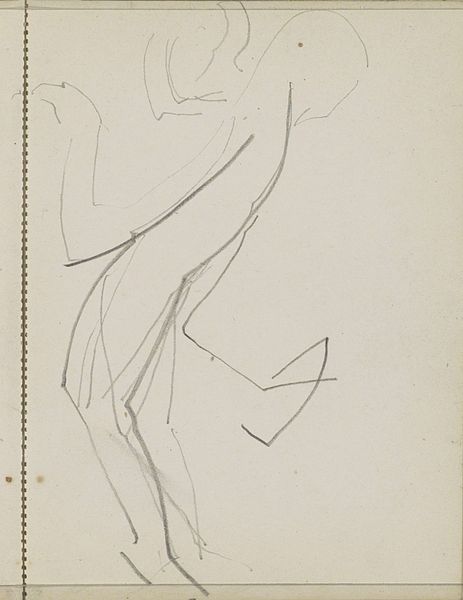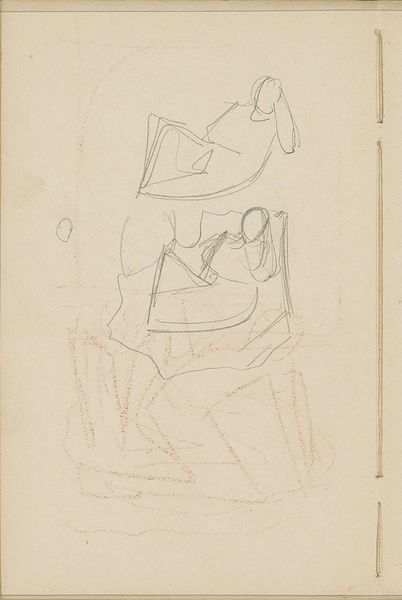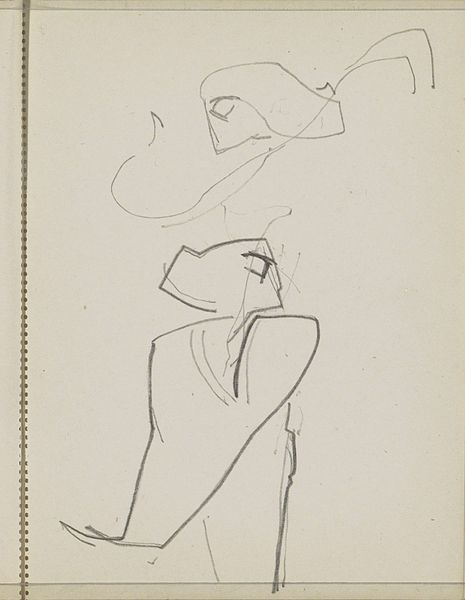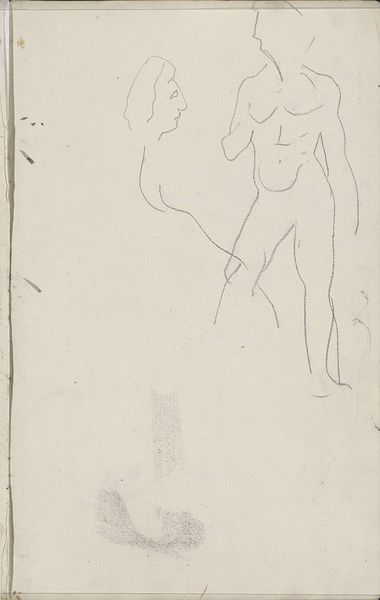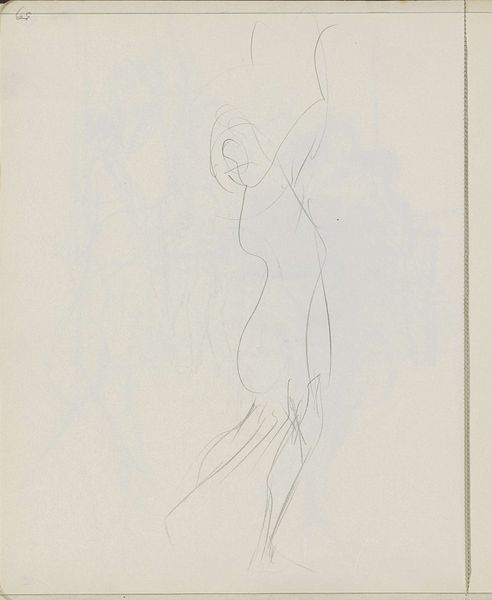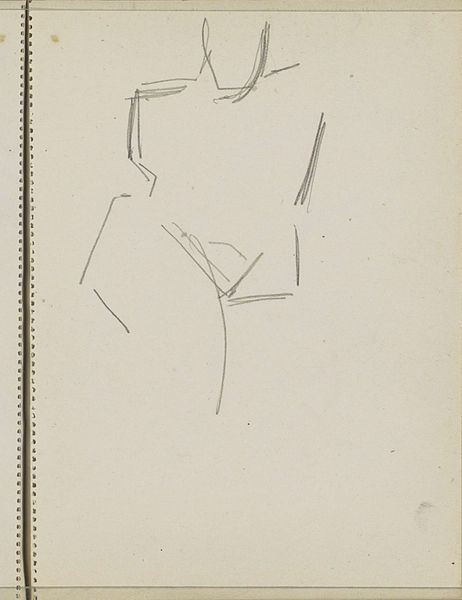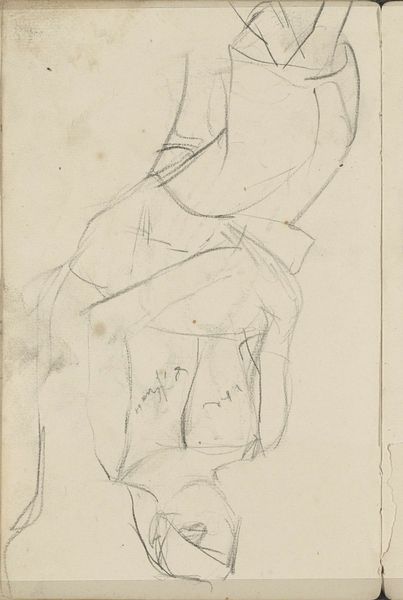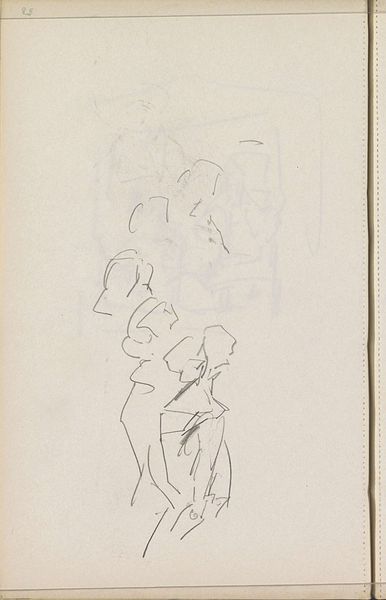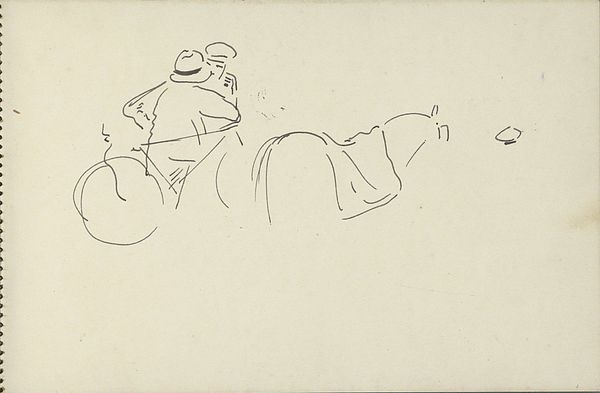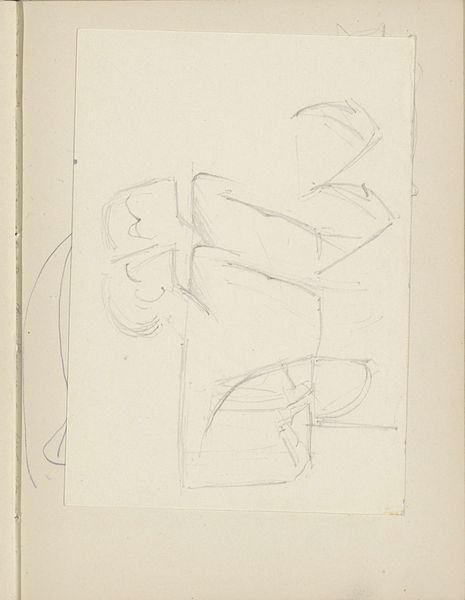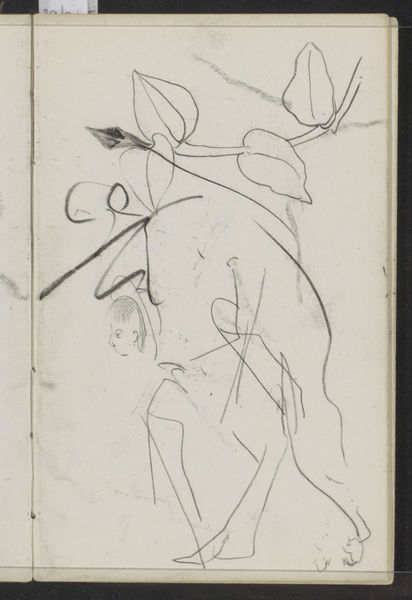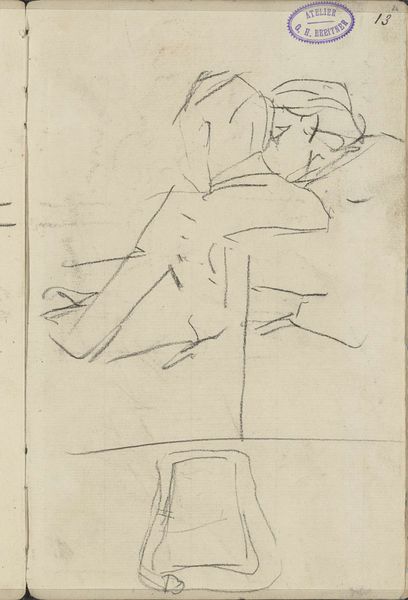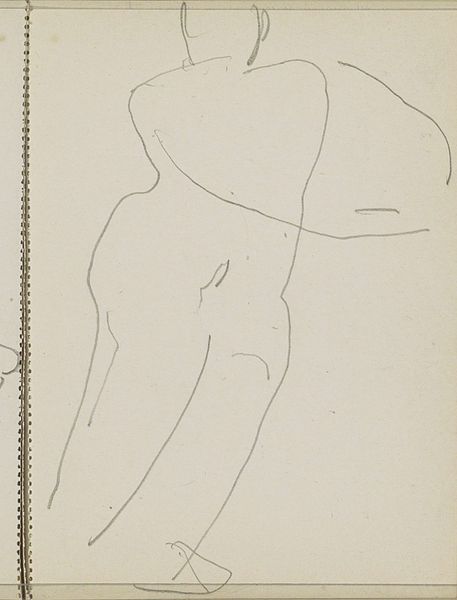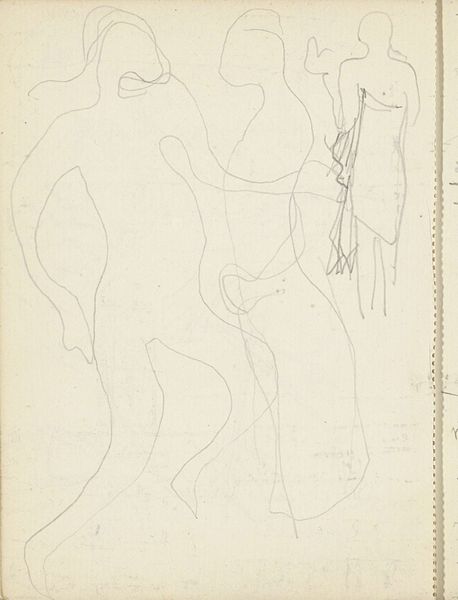
Copyright: Rijks Museum: Open Domain
Editor: So this is "Figuurstudies" by Isaac Israels, made sometime between 1875 and 1934. It's a pencil drawing, and it's deceptively simple. It almost feels like a preparatory sketch, yet it’s in the Rijksmuseum! What should we be paying attention to here? Curator: It’s precisely that "sketch-like" quality that demands our attention. Think about the labour involved. Israels's rapid strokes and the use of readily available, inexpensive materials—pencil and paper—suggest an interest in capturing fleeting moments. Was this intended to be 'high art', or was Israels more interested in the process of observing and recording? Editor: That's a really interesting point! So you're saying the *act* of drawing, the making, is as important as the final product itself? Curator: Absolutely. Consider also the social context. Impressionism challenged academic norms. The subject matter and medium become democratized, more accessible, reflecting a shift away from grand historical narratives to everyday observations. Are we meant to value it less simply because of the medium? How does our culture value craft? Editor: I never thought about it like that before! So the perceived "roughness" isn't a flaw, but a deliberate choice highlighting process and accessibility... Curator: Precisely. It’s questioning the very definition of 'finished' art. Look closely, and consider what those deliberate erasures and sketched lines are suggesting about the artist's decision making and access to materials. This invites us to re-evaluate the relationship between labor, artistic intent, and cultural value judgements of art forms like drawing or studies versus formal paintings or sculptures. Editor: Wow, I'm seeing this in a completely new light. It’s much more radical than it initially appeared. Curator: Exactly. Examining the materiality forces us to confront the systems and conventions that define artistic value. What can seemingly simple sketches reveal about art production? Editor: That’s such a shift in perspective from traditional art history. Thank you for expanding my understanding!
Comments
No comments
Be the first to comment and join the conversation on the ultimate creative platform.
